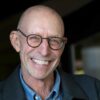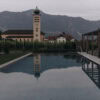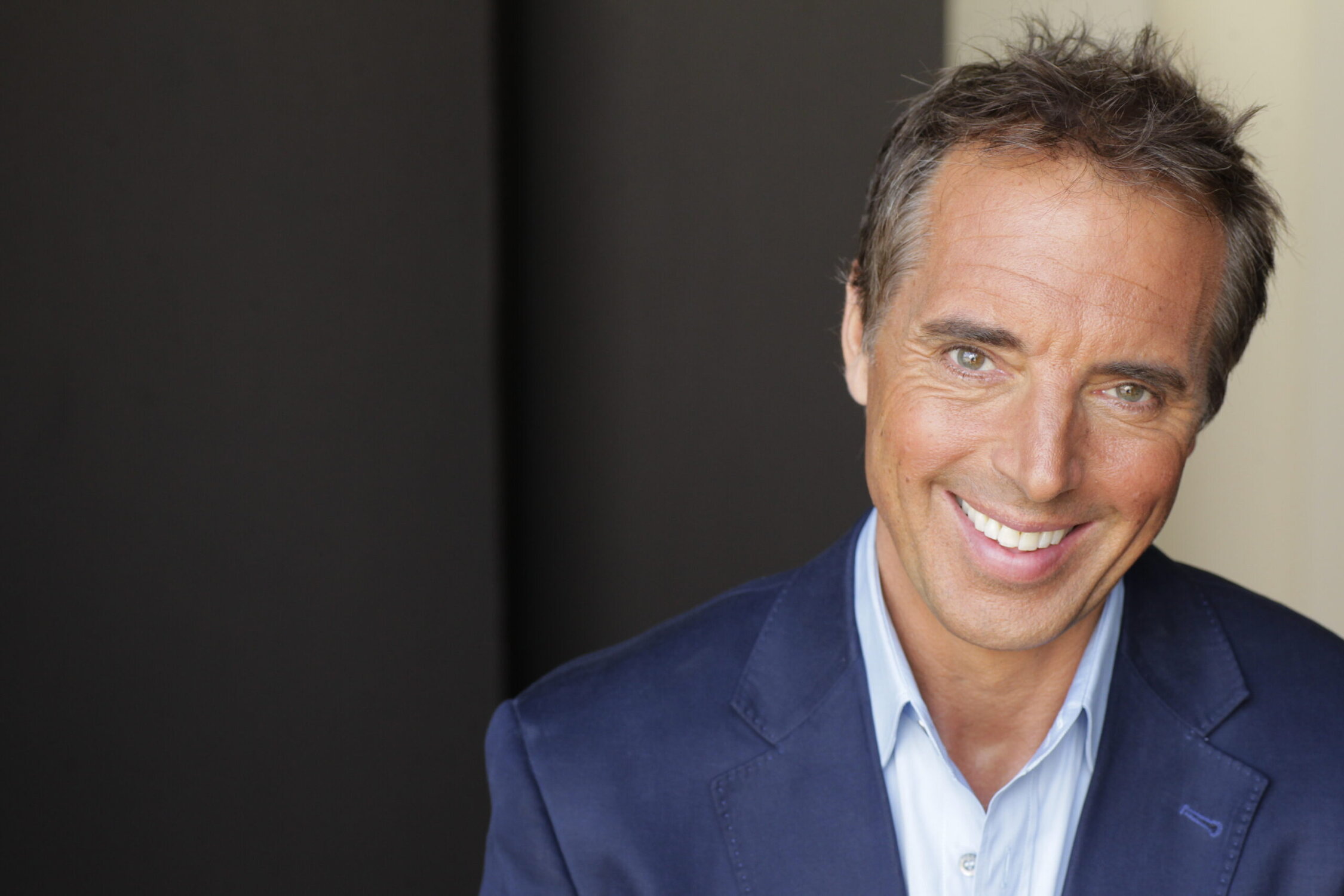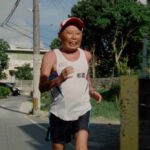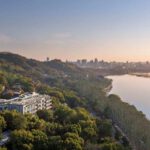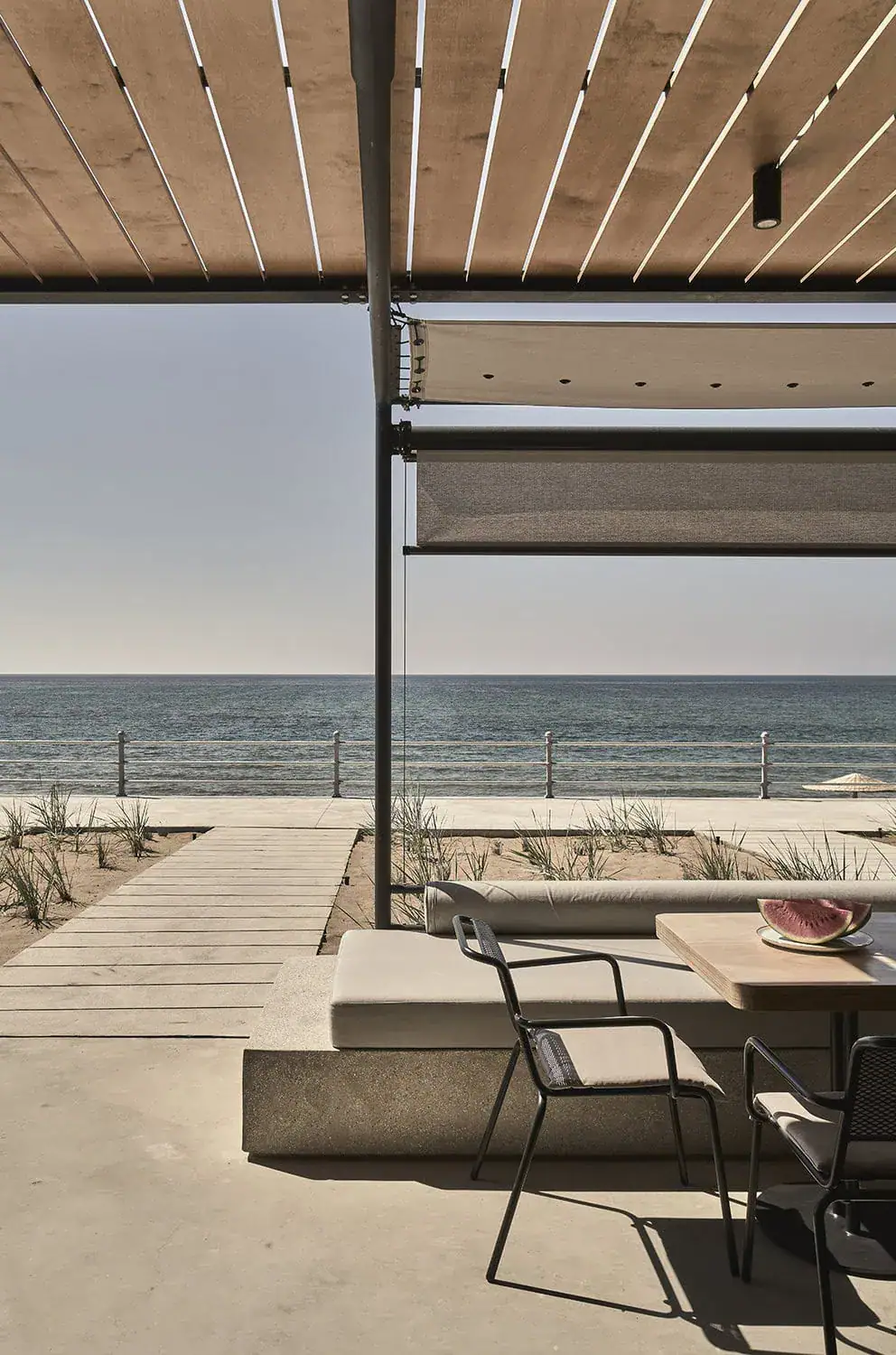Dan Buettner on the secrets of the world’s healthiest communities
Interview: Nina Prehofer
THE STYLEMATE: How old would you like to become yourself?
Dan Buettner:
For me, it’s less about a specific number and more about adding life to my years – and healthy years to my life. Reaching 100 often requires a genetic lottery win, but the good news is: by following the principles of the Blue Zones, you can significantly increase your chances. It’s about staying vital, fulfilled, and living with purpose for as long as possible – and then dying quickly.
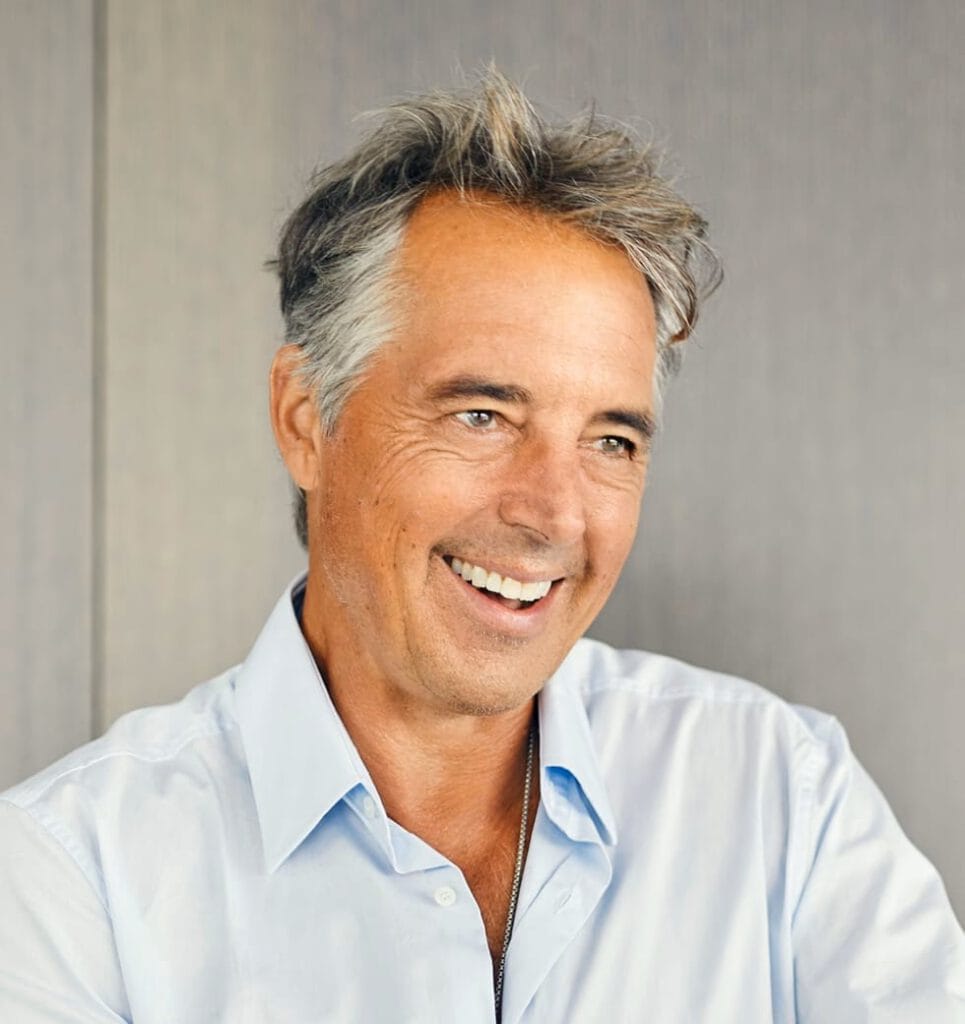
When did you first become interested in longevity?
About 20 years ago, when I was leading expeditions for National Geographic. I was fascinated not only by who lives the longest, but how they do it – and whether we can learn from them. That became the foundation for the Blue Zones Project.
What surprised you most in your Blue Zones research?
How crucial having a sense of purpose is. Purpose is one of the strongest “tools” for a long life. In Blue Zones, people know exactly why they wake up in the morning. In Okinawa, it’s called Ikigai, in Nicoya it’s Plan de Vida. Purpose can be caring for grandchildren, being active in the community, or tending a garden. People with a strong sense of purpose live about seven years longer on average than those without. It’s good not only for the soul but also for the body.
If you had to summarise, what do all Blue Zones have in common?
There are nine common traits – what we call the Power 9 – but the overarching themes are: predominantly plant-based diets, daily natural movement, strong social connections, a clear sense of purpose, and an environment that makes healthy choices easy.
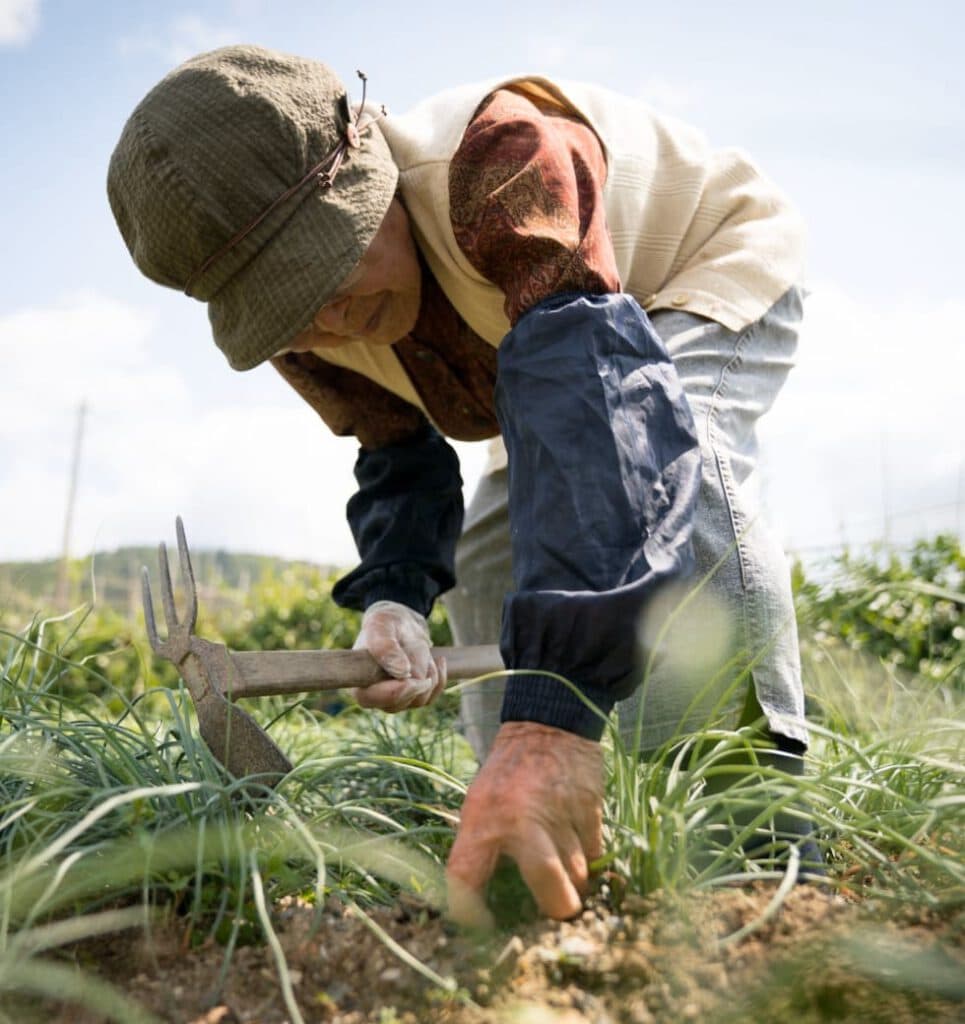
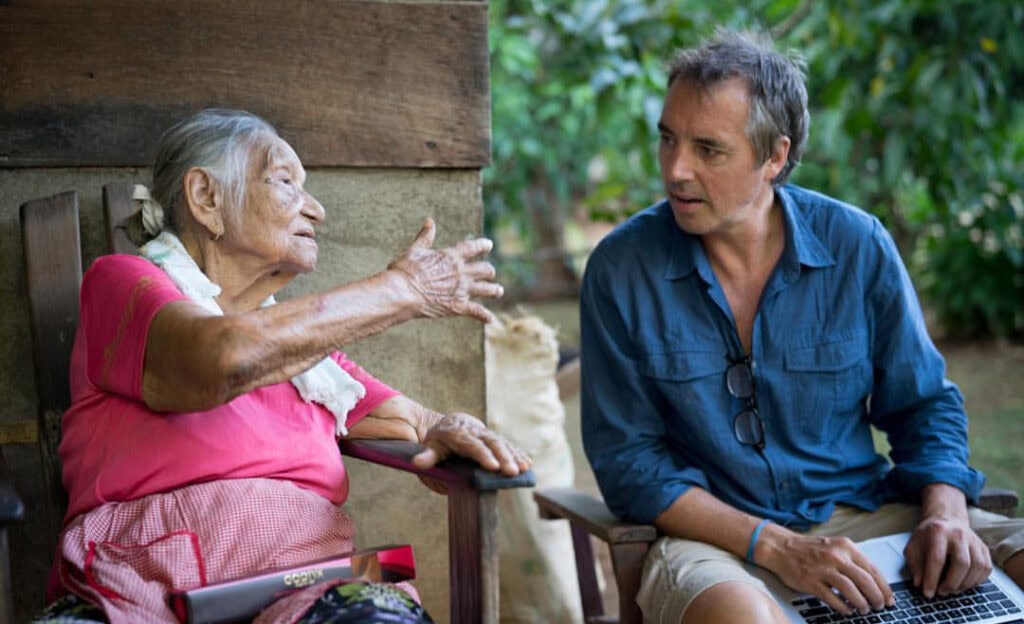
You often say environment is more important than willpower. What do you mean by that regarding longevity?
Willpower is like a muscle – it fatigues. But if your environment naturally leads you to move more, eat whole foods, maintain relationships, and reduce stress, you need almost no willpower. You just live longer and healthier – almost automatically.
How important is social connection compared to diet and exercise?
At least as important – maybe even more. In Blue Zones, people are embedded in stable social networks. They’re not lonely. They have people to rely on. Loneliness is as harmful as smoking 15 cigarettes a day. Social connection is like medicine. If you struggle to make new friends: volunteer for something you care about. It brings you together with like-minded people.
Is modern medicine overrated when it comes to living longer?
Modern medicine is excellent at treating diseases – but not at preventing them. About 80% of our life expectancy depends on lifestyle and environment. We need to shift focus: away from pills and towards policy; away from treatment and towards prevention. Quick fixes like diet trends, supplements, biohacks, and superfoods are definitely overrated.
Is there a common misconception about aging or longevity you would like to dispel?
That aging inevitably means decline. In Blue Zones, people often remain active, mentally sharp, and socially engaged well into old age. Aging doesn’t have to be something we fear – if we live well, it can be a rich and fulfilling phase of life.
What three tips would you give someone living in a typical Western city who wants to start making changes today?
- Redesign your kitchen: Remove unhealthy foods and stock up on whole, plant-based options. Buy a plant-based cookbook and integrate a few new recipes into your meal plan.
- Walk more: Even just 30 minutes a day makes a difference.
- Assess your social circle: Spend time with people whose healthy lifestyles you admire. You don’t have to give up old friends, but maybe find a few new ones who prefer hiking over going to the bar.
Some critics say Blue Zones aren’t transferable to other places. What do you say to that?
That’s not true – we’ve proven it. We’ve worked with over 70 cities, including Albert Lea (Minnesota), Fort Worth (Texas), and Naples (Florida), to implement Blue Zones principles – with measurable improvements in health and life expectancy. You don’t have to move to a Blue Zone – you can create one yourself.
What role do purpose and spirituality play in longevity?
A big one. In all Blue Zones, people have a clear sense of purpose – the Ikigai of Okinawans. Most also belong to a faith community. Purpose gives direction; spirituality gives connection. Both reduce stress and build resilience.
What role does technology – like wearables or health apps – play in your longevity principles?
They can be helpful – but they’re not the solution. The most important tools for a long life are low-tech: walking, cooking together, gardening, laughing with friends. If tech helps remind or motivate you – great. But it shouldn’t replace these things.
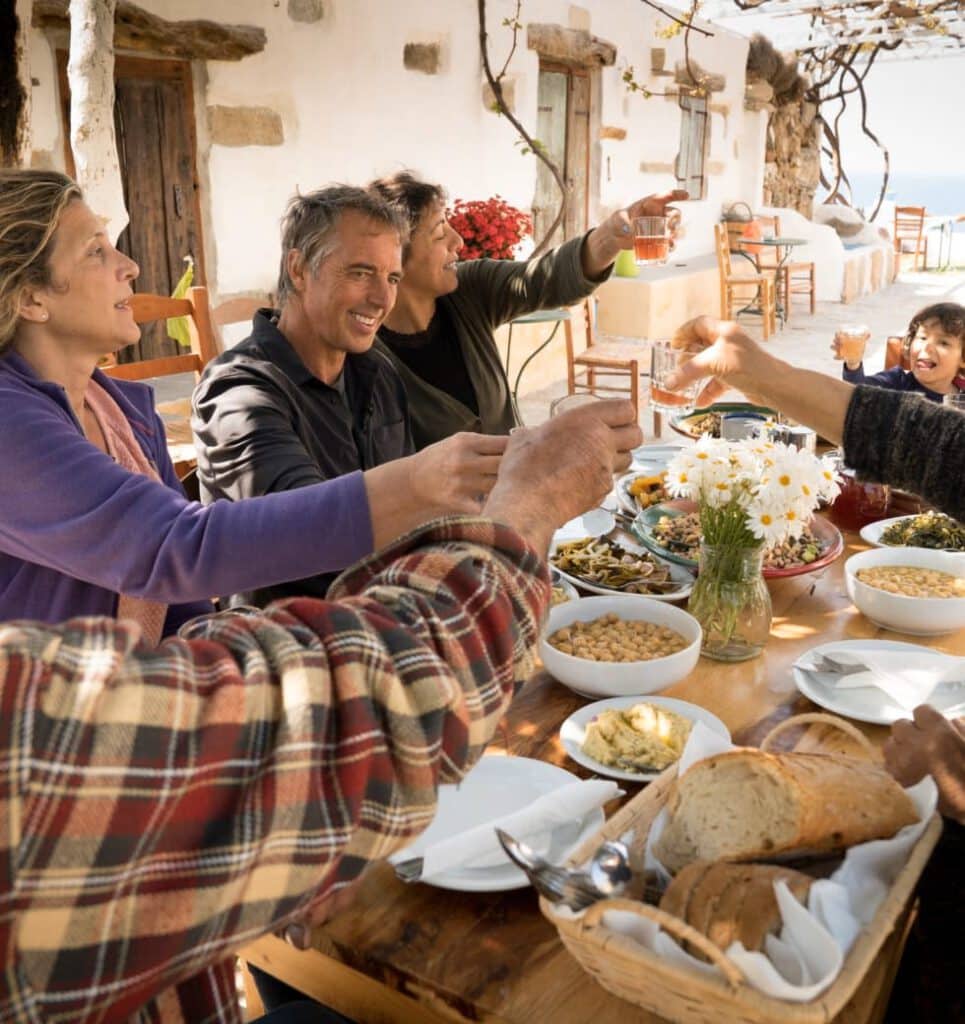

What does a “typical” day look like for you when you apply Blue Zones principles?
I start the morning writing and planning my day (with black coffee). Around 11 am, I eat my first meal – usually Sardinian minestrone, which I cook in bulk on Sundays and freeze. In the afternoon, I take work calls, often while walking or cycling. By 5 pm, I finish work and play pickleball, swim, or walk on the beach (I live in Miami). Evenings are for meeting friends or inviting them for a vegetarian dinner.
Have your views changed since your first book on this topic?
Yes – especially regarding the influence of policy and environment. I used to focus more on individual choices. But I’ve repeatedly seen: change the environment – schools, streets, food systems – and you change the health of entire populations. That’s where the real magic happens.
Finally: Is there a habit you still struggle with personally despite all your knowledge?
Travelling sometimes throws me off rhythm. I often sleep poorly when away. But I remind myself: it’s not about perfection, but consistency over time. Longevity is not a sprint. It’s a marathon.
About Dan Buettner
Dan Buettner is a National Geographic Explorer and multiple New York Times bestselling author. He discovered five places in the world – the so-called Blue Zones – where people live the longest and healthiest lives. His articles in the New York Times Magazine and National Geographic are among their most read pieces.
Buettner founded Blue Zones LLC, partnering with city governments, hospital systems, and insurance companies to implement Blue Zones learnings and make cities healthier. In Fort Worth, Texas, the obesity rate dropped by 3%, with projected health cost savings of $250 million. To date, over 70 cities have adopted Blue Zones projects, improving the health of more than 10 million Americans.
His latest book Blue Zones Kitchen: One Pot Meals; 100 Recipes to Live to 100 releases September 2nd. Based on research and developed for busy Americans, it tackles the core cause of chronic diseases: ultra-processed food. Since Americans eat out over 100 times per year – each time consuming around 300 extra sugar- and salt-rich calories – Buettner advocates a powerful solution: home cooking. To make it practical, he worked with Stanford University’s AI lab to analyse over 670,000 popular recipes and isolate the favourite flavour profiles. The result? 100 quick, affordable, plant-based one-pot meals designed to add up to twelve extra years of life.
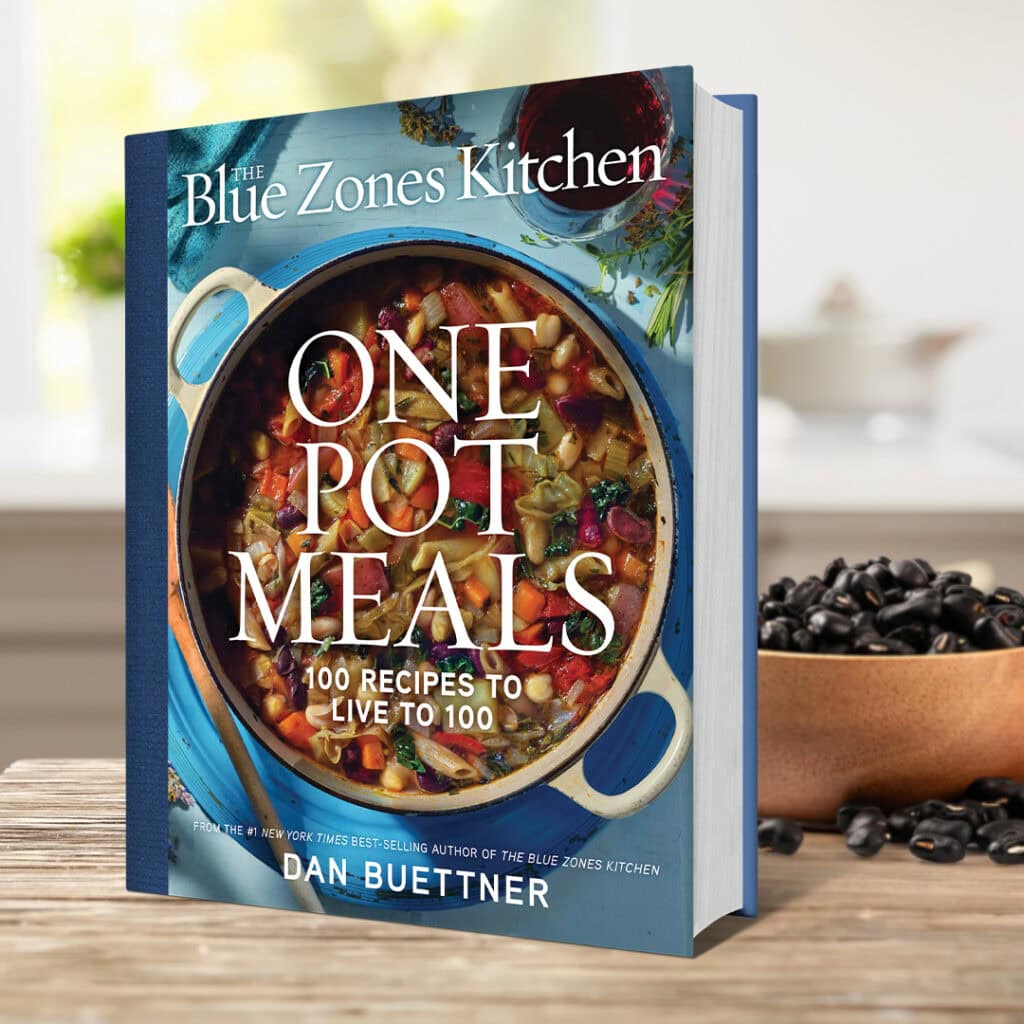
His Netflix series Live to 100 was nominated for six Emmys, winning three, and he holds three Guinness World Records in distance cycling.

